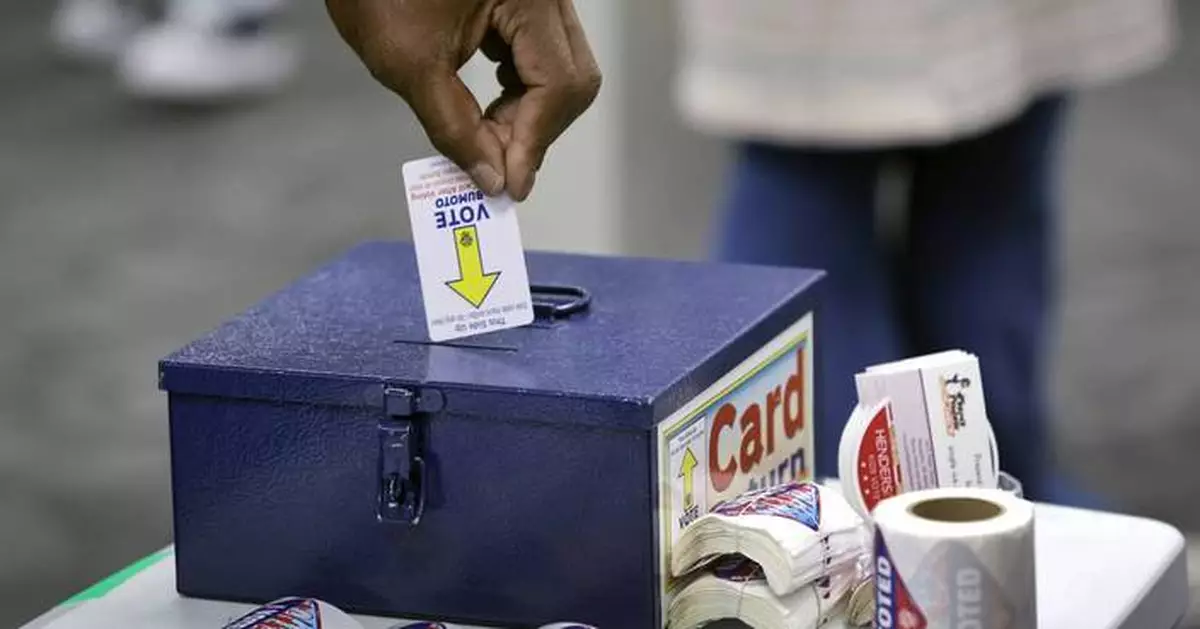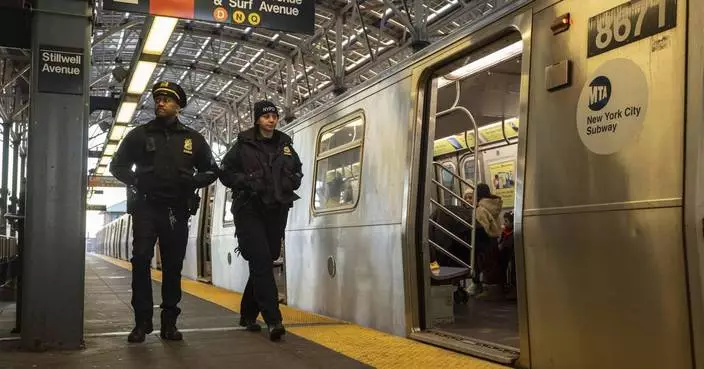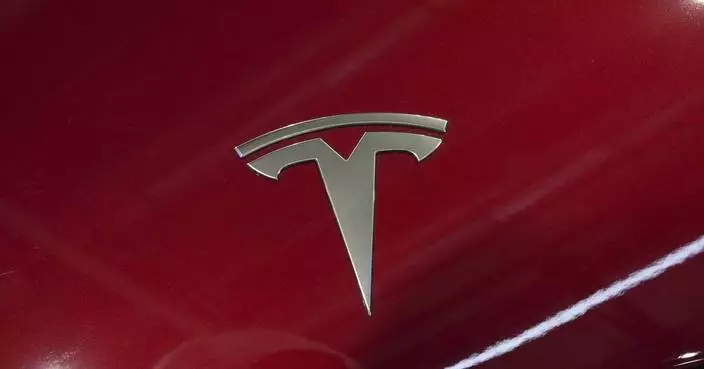WASHINGTON (AP) — Big shifts within small groups and small shifts within big groups helped propel Donald Trump's return to the White House.
The Republican candidate won by holding onto his traditional coalition — white voters, voters without a college degree and older voters — while making crucial gains among younger voters and Black and Hispanic men, according to AP VoteCast, a far-reaching survey of more than 120,000 voters nationwide.
His Democratic opponent, Vice President Kamala Harris, made small gains — most significantly with white men with a college degree living in urban areas — but it was not enough to offset her losses elsewhere.
Younger voters made up a bigger chunk of Trump’s coalition, compared with his voters four years ago.
That happened because Trump benefited from winning slightly more than half of voters over 45, while Harris won about the same share for voters under 45. But older voters make up a larger share of the electorate than younger ones do — and that worked to Trump’s advantage. Roughly 6 in 10 voters in the 2024 presidential election were older than 45.
He kept about the same share of older voters as he did in the 2020 presidential election against President Joe Biden, but he also made small but significant gains with younger voters. In the last election, he won 4 in 10 voters under 45 years old. In this election, he won nearly half.
Looking at the youngest voters — those between 18 to 29 — Trump increased his share of the youth vote significantly. Nearly half, 46%, voted for him over Harris, up from 36% in the last election.
About 6 in 10 Trump voters didn't have a college degree, compared with about half of Harris voters.
A majority of voters in this election did not have a college degree, and most of those non-college-educated voters backed Trump. He won 55% of voters without a college degree, compared with about 4 in 10 who chose Harris. That represented a decline for the Democrats — in 2020, Biden drew about even with Trump among voters without a college degree, earning 47% of their vote compared with Trump’s 51%.
Trump’s gains with non-college voters primarily came from non-white men without a college degree shifting right, as well as younger voters overall without a college degree. But he also won over more non-white women without a college degree compared with the last election.
Harris maintained Biden’s level of support among college graduates, who made up 44% of voters overall. A majority of college-educated voters backed Harris, and about 4 in 10 voted for Trump. But that wasn’t enough when she wasn’t able to capture the same share of voters without a college degree.
Trump's coalition this year was mostly white, just as it was in 2020. But it was more diverse than it was four years ago because of the gains he made with relatively small groups.
White voters made up about three-quarters of the electorate, and they did not shift significantly at the national level — about the same share voted for Trump as in 2020. He was able to make slight inroads with Black and Latino voters, and each group made up about 1 in 10 voters in this election.
Nationally, about 8 in 10 Black voters supported Harris. But that was down from about 9 in 10 in the last presidential election who went for Biden. And while Harris won more than half of Hispanic voters, that was down slightly from the roughly 6 in 10 Biden won.
Trump increased his share of young Black men — something that helped cut into a key Democratic voting group. About 3 in 10 Black men under the age of 45 went for Trump, roughly double the share he got in 2020. Young Latinos — particularly young Latino men — were more open to Trump than they were in 2020. Roughly half of Latino men under 45 voted for Harris, down from about 6 in 10 who went for Biden.
Just like four years ago, Trump drew more strength from rural areas than his Democratic opponent did.
Nearly half of voters, 45%, say they live in the suburbs. About half of those voters went for Harris, while 46% chose Trump. Trump won about 6 in 10 voters who live in small towns or rural communities, while Harris won about 6 in 10 urban voters. Those numbers were roughly in line with support during the 2020 election.
Education was a factor here, too. Trump made slight gains with urban voters without a college degree, as well as non-white voters in urban communities and rural areas. He also drew in slightly more white men without a college degree in urban areas: about 6 in 10 supported him, compared with about half in 2020.
Those gains for Trump among urban voters were offset, however, by Harris' improvement over Biden with white men with college degrees living in urban areas. She won about two-thirds of this group, up from about half for Biden in 2020.
AP VoteCast is a survey of the American electorate conducted by NORC at the University of Chicago for Fox News, PBS NewsHour, The Wall Street Journal and The Associated Press. The survey of more than 120,000 voters was conducted for eight days, concluding as polls closed. Interviews were conducted in English and Spanish. The survey combines a random sample of registered voters drawn from state voter files; self-identified registered voters using NORC’s probability based AmeriSpeak panel, which is designed to be representative of the U.S. population; and self-identified registered voters selected from nonprobability online panels. The margin of sampling error for voters overall is estimated to be plus or minus 0.4 percentage points. Find more details about AP VoteCast’s methodology at https://ap.org/votecast.
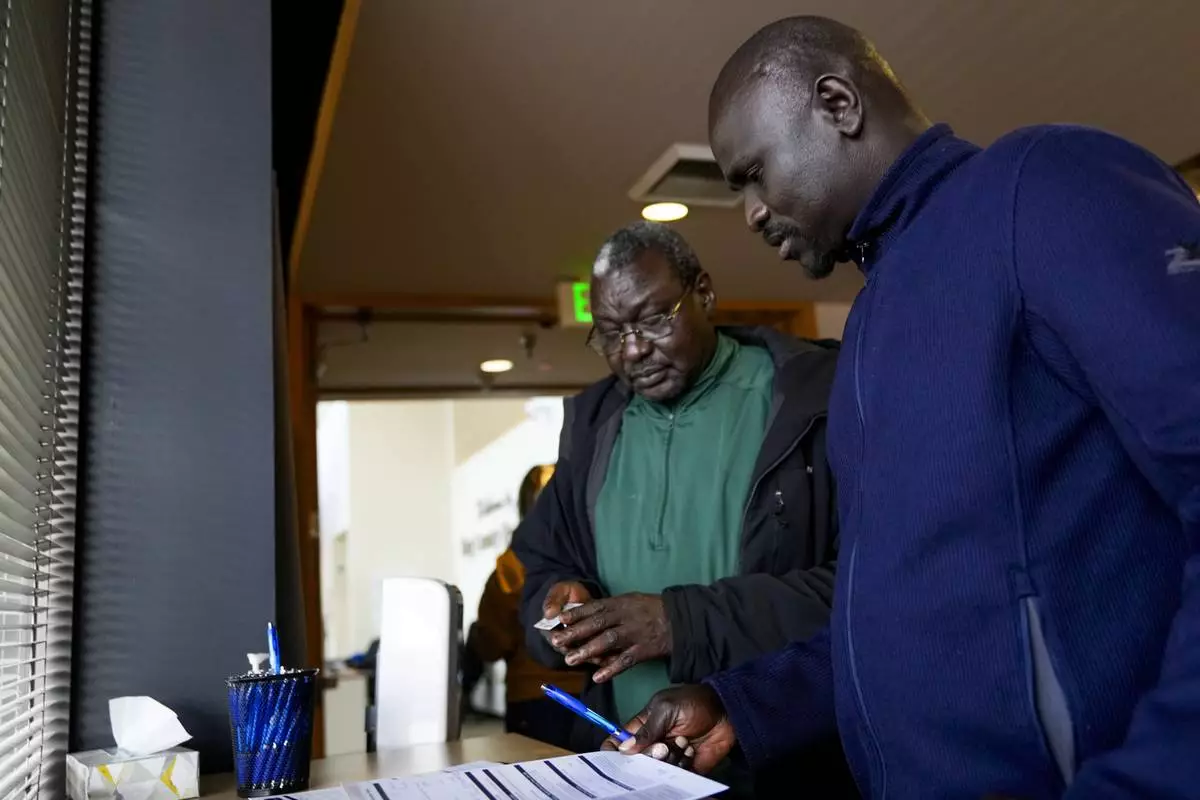
FILE - Michael Mayen, right, originally from South Sudan, registers to vote for the first time with cousin Awoul Ayom, left, at the King County Elections headquarters on Election Day, Tuesday, Nov. 5, 2024, in Renton, Wash. (AP Photo/Lindsey Wasson, File)
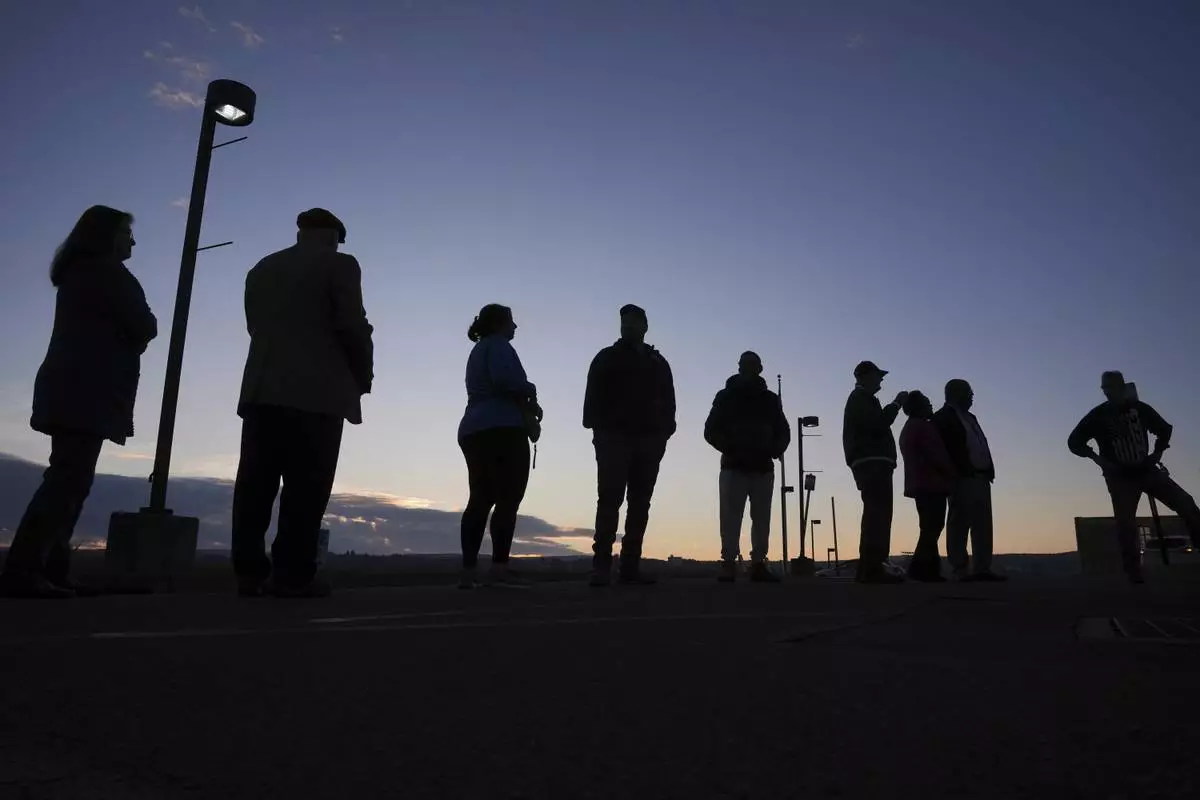
FILE - Voters wait in line to cast their ballots at Scranton High School in Scranton, Pa., on Election Day, Tuesday, Nov. 5, 2024. (AP Photo/Matt Rourke, File)
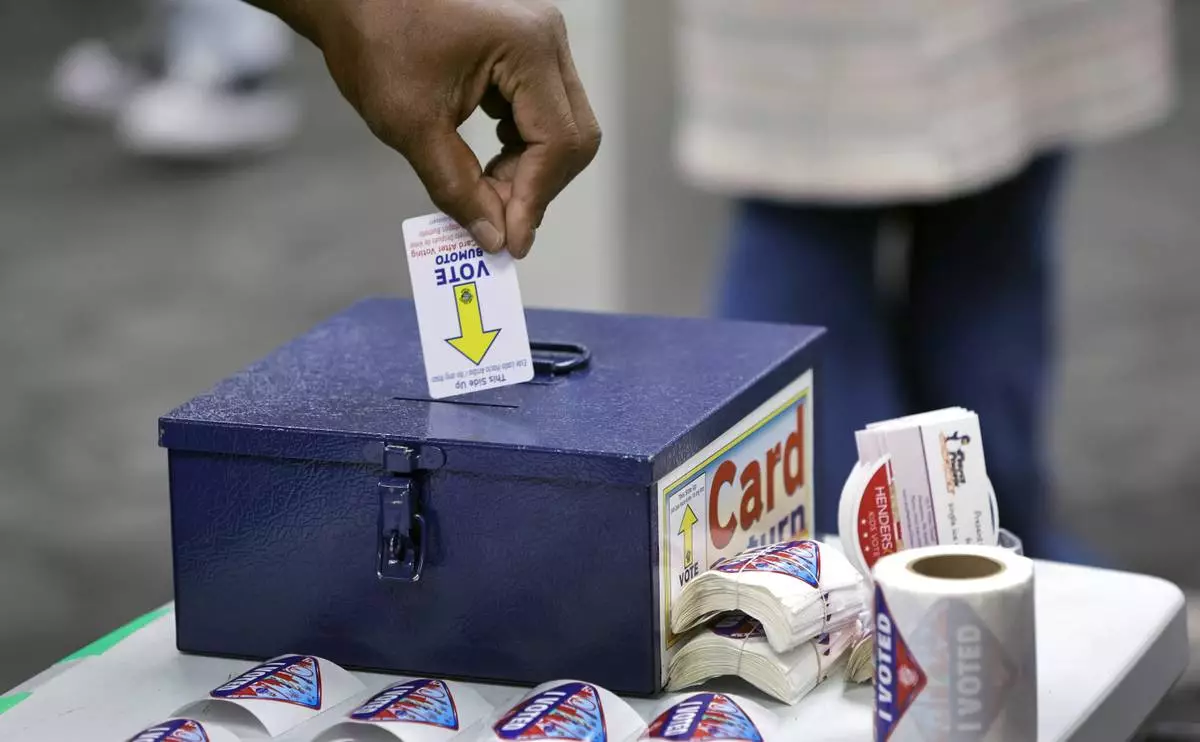
FILE - A voter deposits his voting machine activation card into a box after casting his ballot at a polling site at Henderson City Hall Tuesday, Nov. 5, 2024, in Henderson, Nev. (Steve Marcus/Las Vegas Sun via AP, File)


